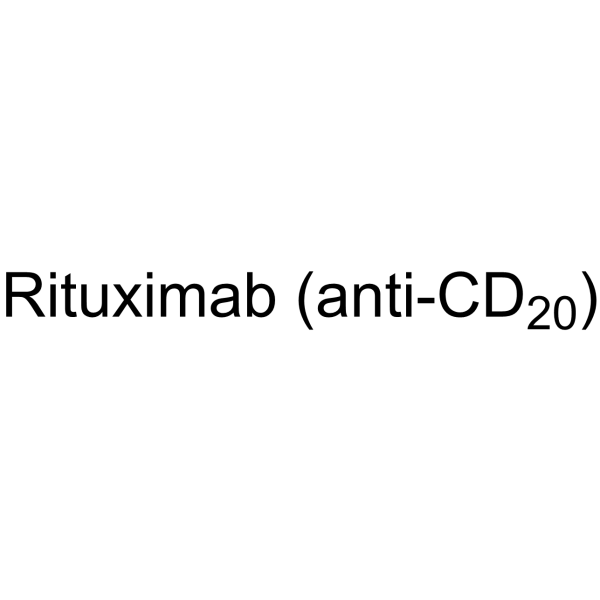| Description |
Rituximab (anti-CD20) is an anti-CD20 chimeric monoclonal antibody used to treat certain autoimmune diseases and types of cancer[1].
|
| Related Catalog |
|
| In Vitro |
Rituximab (anti-CD20) inhibits the proliferation of stimulated human B cells, which is associated with a relative increase of B cells with an activated naive phenotype. Aside from this population shift, there are no major changes in phenotype or cytokine profile of the various B-cell subsets. B cells stimulated in the presence of rituximab induces stronger T-cell proliferation, compared to B cells stimulated in the absence of rituximab[1]. All lymphoma cells tested are equally sensitive to antibody-dependent cell-mediated cytotoxicity (ADCC), antibody-mediated phagocytosis of tumor cells, and rituximab-induced apoptosis. Rituximab (anti-CD20) induces high CDC killing of follicular lymphoma cells[2].
|
| In Vivo |
A single injection of rituximab or the murine anti-CD20 Ab 1F5, given i.p. 1 day after the tumor, cures 100% of the animals. Depletion of either NK cells or neutrophils or both in tumor-injected animals does not affect the therapeutic activity of the drug. Similarly, rituximab is able to eradicate tumor cells in athymic nude mice, suggesting that its activity is T cell independent[3].
|
| References |
[1]. Kamburova EG, et al. In vitro effects of rituximab on the proliferation, activation and differentiation of human B cells. Am J Transplant. 2012 Feb;12(2):341-50. [2]. Manches O, et al. In vitro mechanisms of action of rituximab on primary non-Hodgkin lymphomas. Blood. 2003 Feb 1;101(3):949-54. [3]. Byrd JC, et al. The mechanism of tumor cell clearance by rituximab in vivo in patients with B-cell chronic lymphocytic leukemia: evidence of caspase activation and apoptosis induction. Blood. 2002 Feb 1;99(3):1038-43.
|
